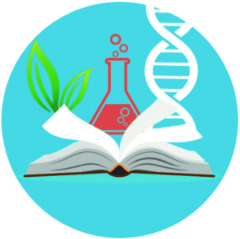
A nursing degree opens the door to a wide range of opportunities for improving healthcare outcomes. With the healthcare sector continuously evolving, specialized roles in the field offer advanced professionals the chance to significantly impact care quality. Advanced training allows nurses to assume leadership roles, provide more comprehensive care, and bring innovative solutions to healthcare challenges. As nurses pursue higher education and specialized qualifications, they gain the knowledge and skills necessary to offer effective care that can improve patient outcomes.
Here’s how you can elevate the standard of care and contribute to the healthcare system:
The Foundation of a Nursing Degree:
A nursing degree forms the core of any nursing professional’s education. It provides the fundamental knowledge required to understand human anatomy, pharmacology, patient care, and medical ethics. This foundation prepares nurses for their crucial role in patient care. Whether you’re pursuing an Associate’s degree or a Bachelor’s, these programs focus on essential skills such as clinical reasoning, communication, and technical abilities. The rigorous coursework and hands-on practice set the stage for future specialization. Without this strong educational foundation, it would be impossible for nurses to take on higher responsibilities that directly affect care delivery and outcomes.
Specialized Nursing Degrees and Their Impact
As nurses progress in their careers, specialized degrees become a key way to offer more tailored and effective care. A well-rounded nursing education equips individuals with the ability to pursue various advanced roles, including Nurse Practitioners (NPs) and Family Nurse Practitioners (FNPs). Understanding and comparing specialized roles like NP vs FNP can help empower nurses to make independent clinical decisions, prescribe medication, and manage care more autonomously, which enhances the quality of care delivered.
For instance, Nurse Practitioners (NPs) play an increasingly important role in primary and specialized care settings, working closely with physicians and other healthcare professionals to diagnose conditions and create treatment plans. In contrast, Family Nurse Practitioners (FNPs) provide family-centered care, which focuses on managing the long-term health of entire families. These advanced nurses often act as primary care providers, emphasizing preventive care and the management of chronic conditions.
While roles require a strong nursing foundation, their distinct areas of expertise make them indispensable in improving outcomes. Family Nurse Practitioners, for example, emphasize preventative strategies for families, which can drastically reduce hospital visits by catching health issues early. NPs, on the other hand, focus on specific conditions that require specialized treatment, such as mental health issues or cardiovascular diseases.
The Value of Clinical Experience
Clinical experience is one of the most valuable aspects of nursing education. It hones a nurse’s technical skills and builds critical thinking and problem-solving abilities. Through hands-on practice in various healthcare settings, nurses develop a deep understanding of patient needs and how to respond to them appropriately. This real-world exposure teaches nurses how to handle challenging situations, make quick decisions, and deliver compassionate care, all of which contribute to better outcomes.
During clinical placements, nurses have the opportunity to interact with a diverse range of patients, conditions, and medical teams. This exposure helps them understand the nuances of patient care and prepare them for complex medical situations. The more clinical experience a nurse has, the better equipped they are to provide high-quality care, making it an integral part of their education and career development.
Expanded Knowledge and Expertise
The knowledge gained through a nursing degree, especially when pursued at an advanced level, significantly improves a nurse’s ability to handle various medical conditions and patient needs. Nurses with advanced qualifications are trained in specialized areas such as advanced diagnostics, pharmacology, and therapeutic procedures. This deeper knowledge allows them to make better-informed decisions, manage patients with complex health issues, and apply best practices in patient care.




